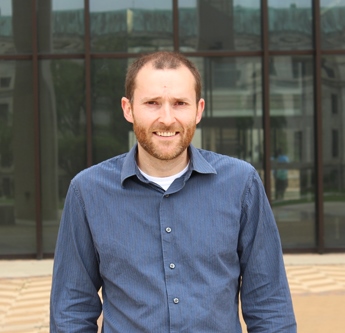The MuSO Project
Read about the outcomes from 2016 Europeana research grants winner Dr Timothy Duguid, University of Glasgow, UK.
The Europeana Research Grants Programme was first launched in 2016 and proved hugely popular. Digital humanities researchers applied with projects that addressed research questions by using Europeana data. The high volume of proposals proved just how important it is to make heritage data available. And the wide variety of ideas showed the depth of potential in Europeana Collections material.
 Grants were awarded to three projects, and in this mini blog series, we’re sharing their final reports with you, finding out what they’ve achieved and where they’ll go from here. Our last project is The MuSO Project (Music Scholarship Online), by Dr. Timothy Duguid, University of Glasgow.
Grants were awarded to three projects, and in this mini blog series, we’re sharing their final reports with you, finding out what they’ve achieved and where they’ll go from here. Our last project is The MuSO Project (Music Scholarship Online), by Dr. Timothy Duguid, University of Glasgow.
Download The MuSO Project’s final report.
What’s the project?
Music Scholarship Online (MuSO) is a new virtual research environment dedicated to born-digital and digitized scholarship in music. It contributes to the Advanced Research Consortium (ARC), an organization promoting digital scholarship and incorporating increasingly diverse content.
This project brought together an early modern music and digital humanities scholar, a digital humanities librarian with a degree in vocal studies, a music special collections librarian with a background in jazz, and an alternative academic professional with no prior experience in music, but a wealth of knowledge about aggregation, digital resource discovery, and ARC metadata.
How does it use Europeana Collections?
18th-century material from the Europeana Music Collection was pulled into the Advanced Research Consortium. This was possible thanks to the fact that over the years, Europeana and partners have worked hard on developing a standardized way of dealing with data. This project generated guidelines - an ‘RDF schema’ - for music content and a way of transferring it - a ‘crosswalk’ - into ARC.
What did the project achieve?
Observations and solutions that the team came across in developing the ‘crosswalk’ will have a more wide-reaching effect on ARC in general, with the MuSO team now able to propose a series of changes to enable it to better incorporate music-related data while also enhancing its existing content.
Thanks to the development of the RDF schema and crosswalk, the material from the Europeana Music Collection was successfully ingested into 18thConnect - an online portal for 18th century digital scholarly resources.
What’s the future of the project?
As the project transitions to another stage of development the team will continue to explore questions raised by this first stage. Questions such as: If we craft our discovery tools to reflect the ways that specific disciplines conduct research, do disciplinary boundaries necessarily mean that each discipline needs its own schema? Do these tensions mean that literary studies and music studies are fundamentally different? Or can a schema, especially a schema that relies on existing vocabularies and links to existing datasets, help humanists approach a satisfying global schema for digital cultural objects?
The team will continue to work with the ARC community to establish workflows for evaluating and curating multidisciplinary digitized and born-digital content. They will also bring the whole of the Europeana Music Collection together with other digitized collections and born-digital content from around the world, in an effort to provide scholars with a portal for discovering high-quality music scholarship and resources: MuSO.
To find out more, explore an earlier interview on this project and visit the project website
